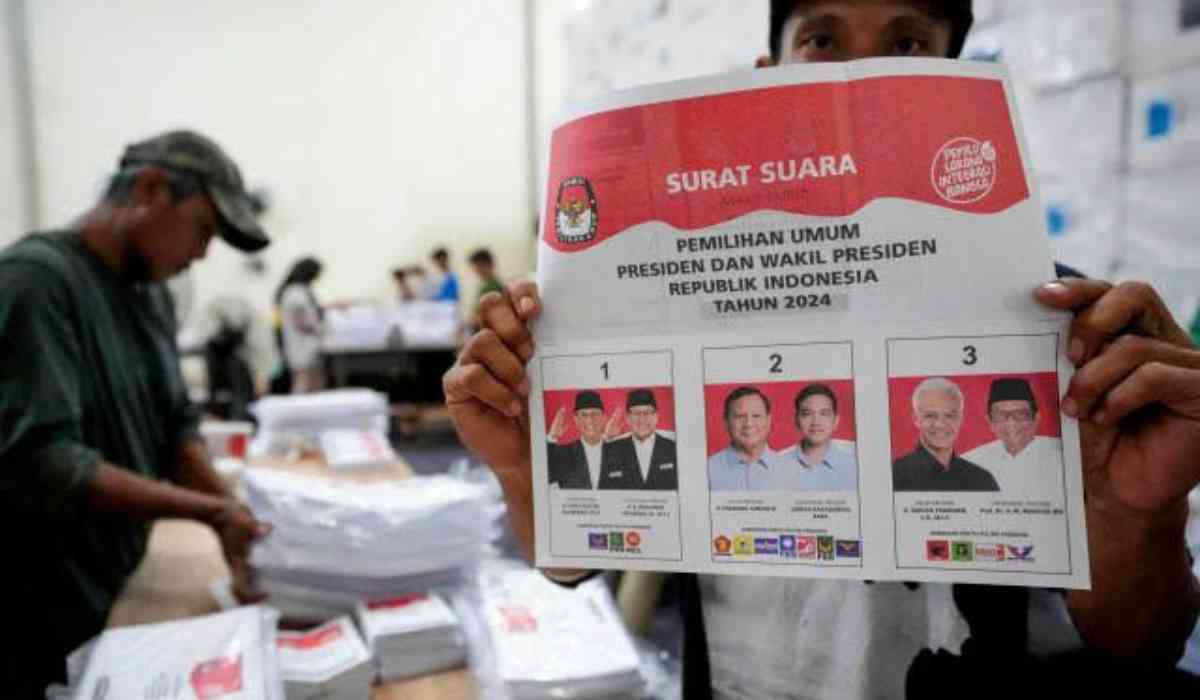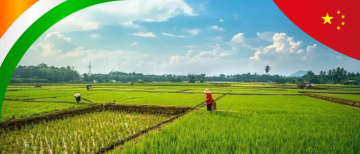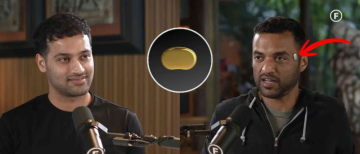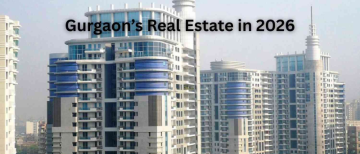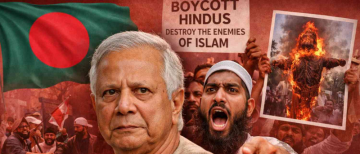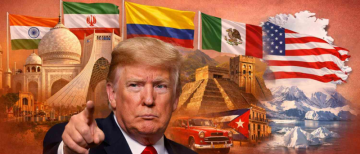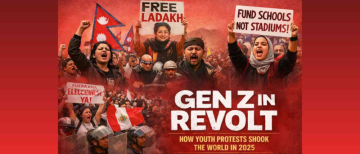As the world's third-largest democracy, Indonesia gears up to host its fifth presidential and legislative elections. Nearly 205 million eligible voters will cast their ballots on February 14, making it the world's largest single-day election, across a diverse archipelago of 17,000 islands and over 1,300 ethnic groups.
The election is a three-way competition, Prabowo Subianto, a 72-year-old incumbent defense minister and former military general, is poised to contest against Anies Baswedan, the former governor of Jakarta, and Ganjar Pranowo, the former governor of Central Java.
The upcoming presidential election will decide the successor to President Joko Widodo, commonly referred to as Jokowi, who is currently in his second and last term. If none of the candidates attain more than 50 percent of the national votes and at least 20 percent in each province in the initial round, a runoff between the top two contenders is scheduled for June 26th.
In Indonesia, tens of thousands of candidates are contesting for approximately 20,000 parliamentary positions across national, provincial, and district levels. The national parliament alone sees around 10,000 candidates from 18 political parties competing for seats in the 580-member assembly. To nominate a presidential candidate, a party or coalition must secure at least 20% of seats in the national parliament.
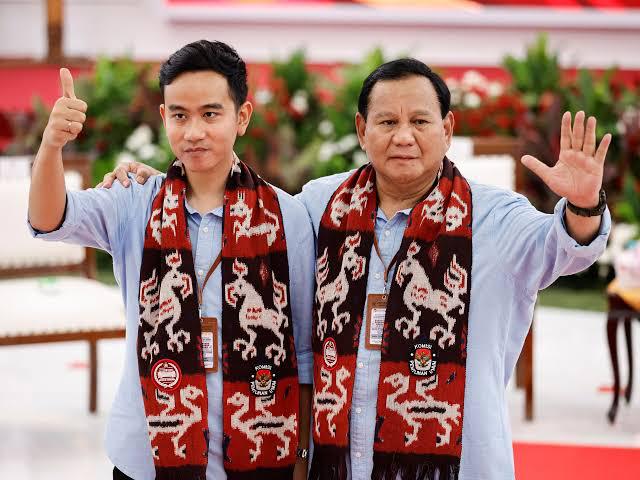
To ensure gender representation, political parties must include a woman in at least every third position on their party list. Additionally, parties must secure a minimum of 4% of votes nationwide to be eligible for representation in the national parliament.
Approximately 52% of registered voters are under 40 years old, with one-third of them below 30 years old, highlighting the significance of the "youth vote." Candidates have been actively engaging this demographic through social media campaigns. While any
Indonesian citizens aged 17 or above are eligible to vote, members of the police and military are excluded from voting, although their families can participate. Indonesians living abroad have been participating in the voting process since February 5th, either at 3,000 polling stations in different countries or via mail-in ballots.
Polling stations will operate from 7:00 a.m. to 1:00 p.m. across three time zones, with about 7 million election officials overseeing the process. Indonesian citizens abroad started voting on February 5 through polling stations and mail-in ballots.
Over 820,000 polling stations are available nationwide. Despite protests, officials ensured ballot delivery to remote areas spanning three time zones, using boats, helicopters, and ox-drawn carts for transportation.
Upon entering a voting booth, each voter must handle five ballots simultaneously, selecting one pair of presidential and vice-presidential candidates from three options, along with representatives at the national, provincial, regional, regency, and city levels. Votes are counted publicly at polling stations.
Private polling and survey organisations will deploy thousands of volunteers and staff to polling stations nationwide. Over 25,000 police officers have been mobilised to maintain security during the closely contested election, which is considered a crucial test of democracy for this Southeast Asian nation, marking over two decades since the end of authoritarian rule.
The newly elected president is set to be inaugurated on October 20th and will be tasked with appointing a cabinet within two weeks following the inauguration.
US-China Impact on Elections
This election, closely monitored by both the US and China, will also determine future executive and legislative representatives at various administrative levels in the world's third-largest democracy.
Recent elections in Indonesia, home to the world’s largest Muslim population, were marked by divisive identity politics, with Mr. Joko falsely labeled as a “Chinese Christian” and Mr. Prabowo facing questions about his prayer habits.
Significant Chinese trade and investment have increased in Indonesia, including the funding of a $7.3 billion high-speed railway project, while Jakarta has also strengthened defence ties and increased military exercises with the US.
Celebration of ‘Election Festival’ in Indonesia
A few decades ago, during Suharto's oppressive regime, the notion of free and fair elections was unimaginable in Indonesia. However, following his downfall in 1998, Indonesia emerged as the world's third-largest democracy.
Election Day is now a national holiday, contributing to consistently high voter turnout, which hit a record 80 percent in 2019. With the voting age set at 17, the largest demographic bloc this time around comprises people under 40, making up over half of the 205 million eligible voters in Indonesia.
Recently in Jakarta, Indonesia's capital, a gathering of more than a thousand individuals occurred as a precursor to the well-known "Pesta Demokrasi," or Democracy Party celebration. Tens of millions of Indonesians from the vast archipelago of thousands of islands head to polling stations with balloons, garlands, and flowers.
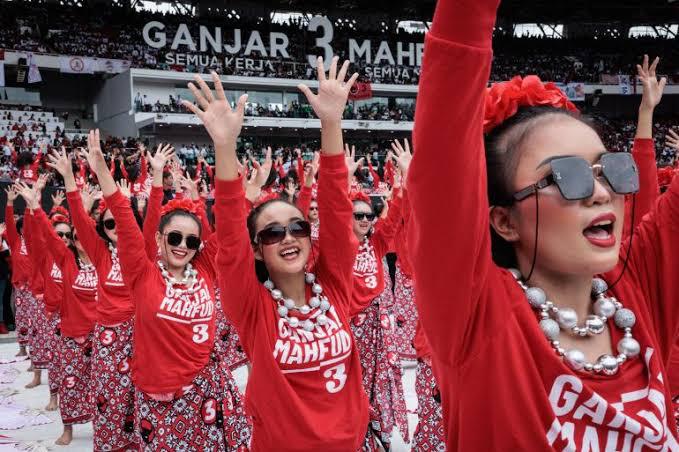
These stations are often manned by officials dressed as superheroes like Spider-Man, Batman, or Thor. After casting their votes for presidential, parliamentary, and local legislative candidates, people often gather near the polling places, bringing food as they await early vote counts.
Young men and women were observed moving from booth to booth, inquiring about the track records and visions of the political hopefuls. Nearby, first-time voters were seen practicing casting their ballots in mock voting booths. Onstage, talk show guests engaged in discussions on how to make informed choices in supporting a candidate.
The festival was initiated by the "Bijak Memilih" website, or "Choose Wisely," aimed at guiding young voters who expressed confusion about their choices in the election.
Mr. Anies, a former Jakarta governor, has gained support from unexpected quarters, including Indonesian K-pop fans who organized various activities to promote his candidacy. Many have been endeared to him due to his active engagement with supporters on platforms like TikTok.
Criticism of Ex- President Joko Widodo
The departing president, Joko Widodo, who has overseen the consistent expansion of the mineral-rich Group of 20 economy over the past decade, faces criticism for allegedly interfering in the February 14 elections.
Widodo has distanced himself from the Indonesian Democratic Party of Struggle, the party under which he ran in 2014 and 2019, especially since the party nominated Ganjar Pranowo and former top security minister Mohammad Mahfud as presidential and vice-presidential candidates.
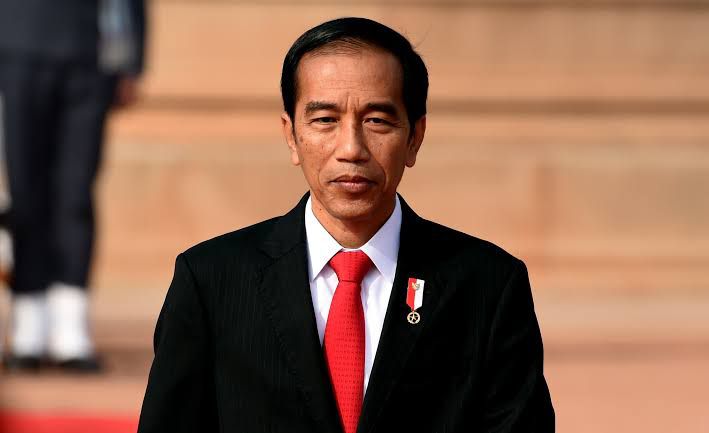
Additionally, There is growing unease within civil society regarding Widodo's intentions to maintain influence even after leaving office. In recent days, activists, students, and university lecturers have voiced concerns about the democratic standards in Indonesia, pointing to unethical, corrupt, and nepotistic practices, as well as a decline in the country's quality of life.
Mr. Prabowo effectively utilised social media to transform his image from a feared general to a grandfatherly figure, capitalising on digital tactics. However, his past remains unknown to many young voters, and his alliance with Mr. Joko has boosted his popularity.
Despite being on a joint ticket, Mr. Prabowo hasn't received an explicit endorsement from Mr. Joko's office, sparking concerns about democratic principles in Indonesia. Critics claim Mr. Joko is using government resources to support Mr. Prabowo's campaign, potentially aiming to retain influence beyond his second term.
About Indonesia
Indonesia is situated between the Indian and Pacific oceans, and is the world's largest island chain, spanning a distance equivalent to that from New York to London.
Indonesia is Southeast Asia's largest economy. It is the world's fourth most populous country, with a rich cultural heritage and diverse natural resources. Nearly 90% of Indonesia's 277 million people are Muslims, making it the world's largest Muslim-majority nation.
Indonesia’s strategic location also gives it geopolitical significance, and as a member of several international organisations, including the United Nations, G20 and ASEAN, it plays a key role in regional and global affairs. Indonesia’s political stability plays a central role in maintaining regional peace and stability.
(Inputs from Agencies)
Photo: Multiple Sources
©️ Copyright 2024. All Rights Reserved Powered by Vygr Media.

